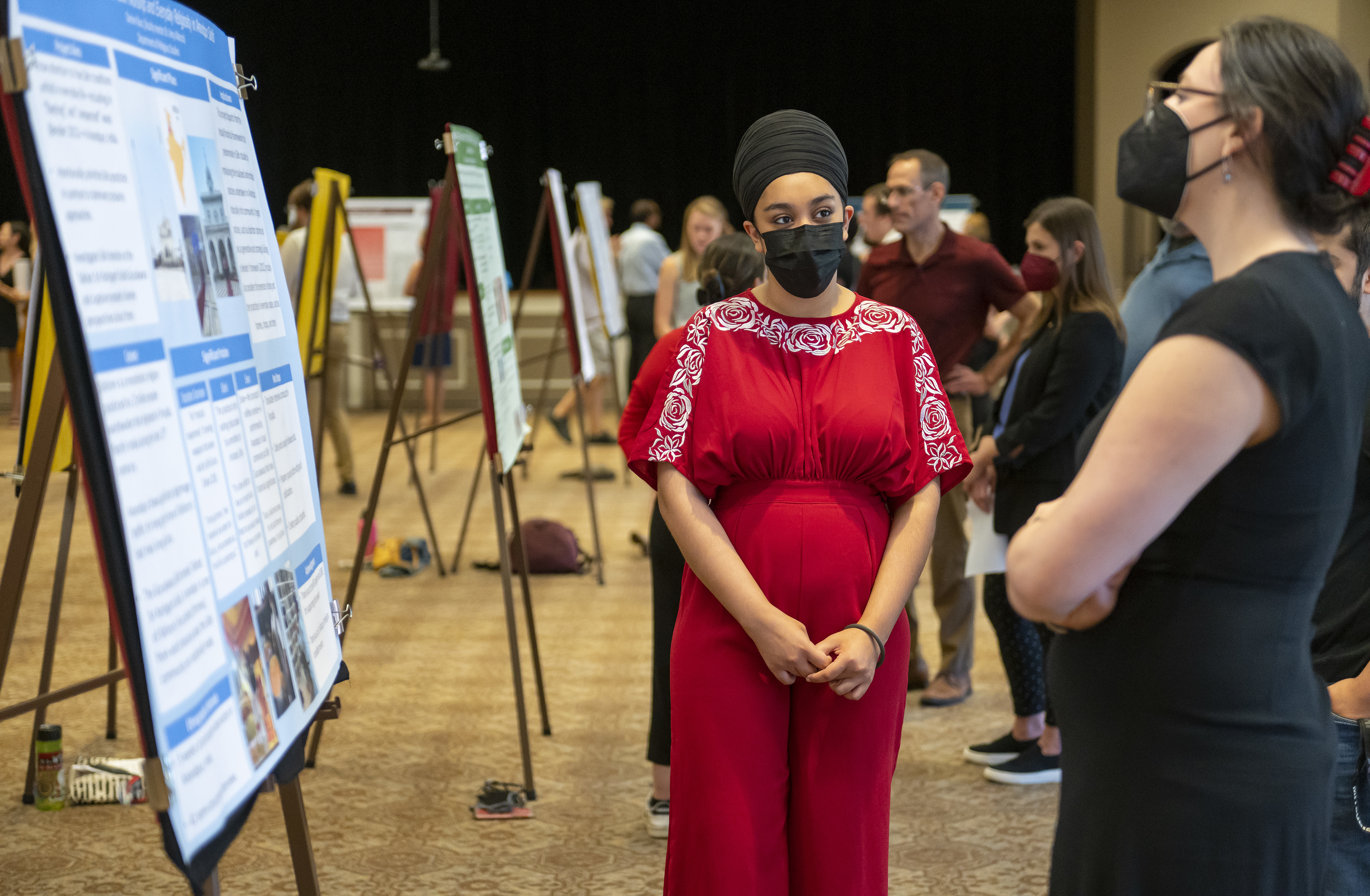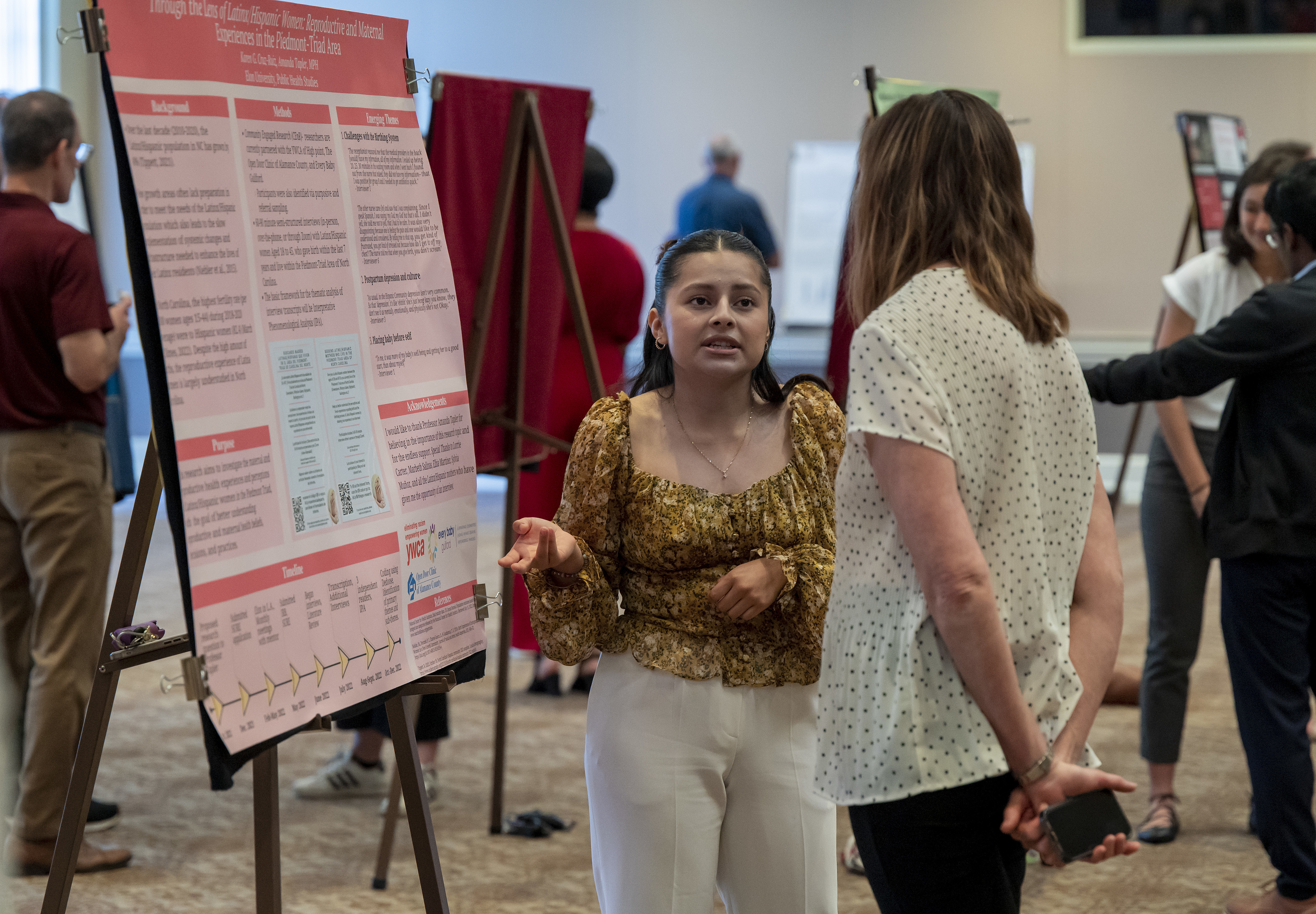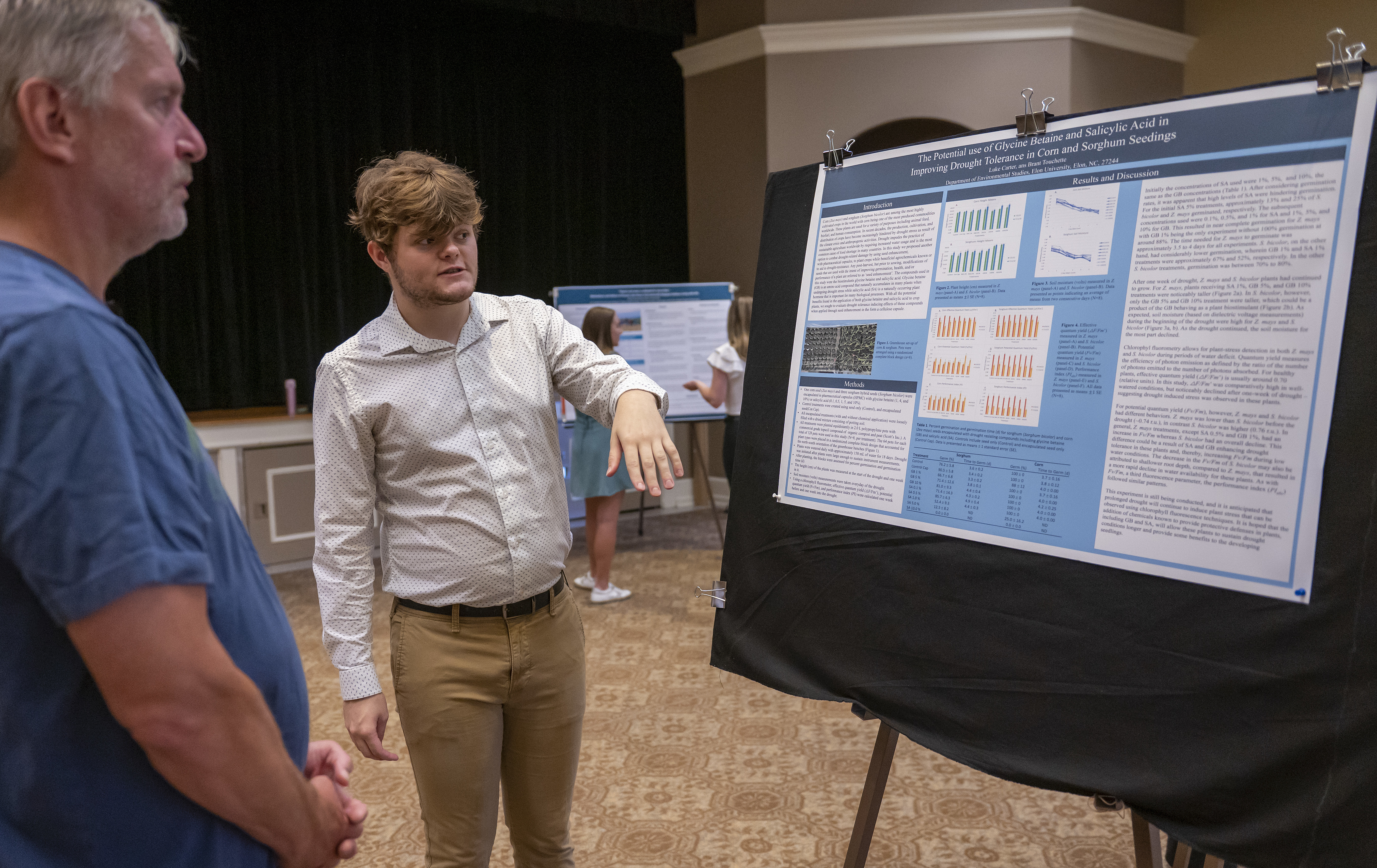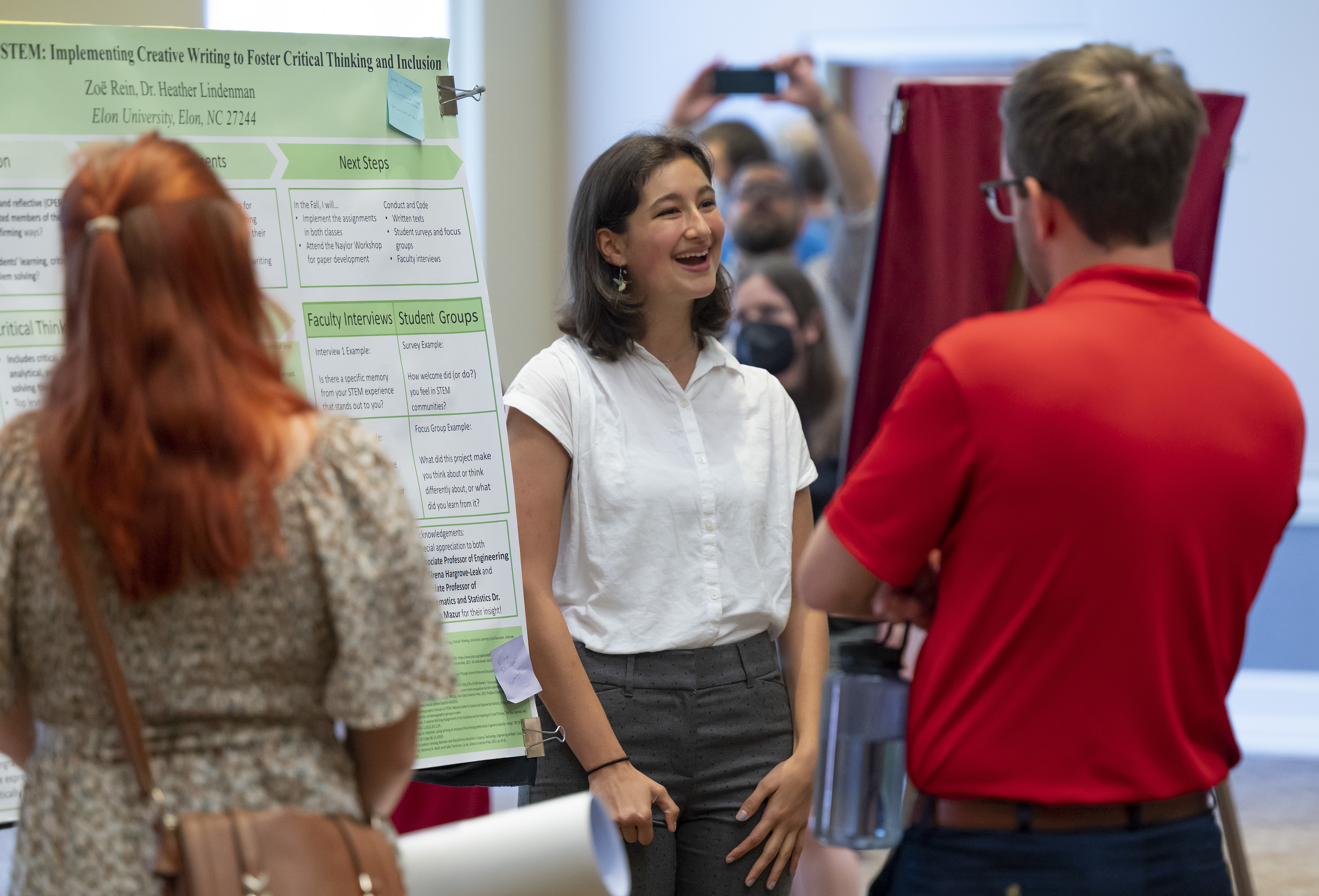The poster session in McKinnon Hall allowed students to share findings and progress on their summer research projects during the annual Summer Undergraduate Research Experience.
Thirty-seven Elon students presented their research posters in McKinnon Hall on Wednesday for the annual Summer Undergraduate Research Experience (SURE).
One of Elon’s signature research programs, SURE offers undergraduates and their mentors the opportunity to devote time and resources outside of the main academic year to specific areas of interest. Both students and mentors receive a $3,000 stipend to work full-time on projects that will have staying power beyond the eight-week program and lead to peer-reviewed publications and conference presentations.
“SURE shows the strong commitment that our institution has for supporting undergraduate research. In talking with students and faculty, you hear that what SURE allows is dedicated time to focus on undergraduate research projects,” said Eric Hall, director of undergraduate research. “This can happen because they don’t have many of the other responsibilities as they would during the school year with classes, possibly part-time jobs and other distractions. This allows laser focus which is beneficial no matter the stage of the research project.”

Darsev Kaur’s ’23 research took her on a five-week odyssey in India to draw attention to how Sikh traditions unfold in everyday life. Sikhism, a monotheistic religion practiced by 23 million people globally, originated in Punjab, North India in the 15th century.
Kaur practices Sikhism and, through the 41 semi-structured interviews she conducted in India, hopes to address some of the misconceptions and stigma around Sikhism.
“One of my goals is to create public scholarship which will help people understand Sikhism who aren’t very familiar with it. It’s important to learn about different religious traditions and be aware of what kinds of people we’re talking to and who our neighbors are,” Kaur said.
The research of Karen Cruz-Ruiz ’23 on Latinx women and their reproductive and maternal experiences also has a strong personal connection.
“This all started because I have heard a lot from my mom about her birthing experience of me, as well as pregnancy and postpartum experiences and how her culture was integrated into her decision making,” Cruz-Ruiz said.
Another motivation for Cruz-Ruiz was the fact that North Carolina’s Latinx population has grown by 40% from 2010 to 2020, the largest growth rate of any ethnic group in the state during that time, and the resources to address that increase has been far and few between.

She proposed her research question to her mentor, Senior Lecturer in Public Health Studies Amanda Tapler, in October 2021 and began interviews and literature review in June. Cruz-Ruiz has interviewed seven Latinx women aged 18 to 45 in the Piedmont-Triad area who’ve given birth in the last seven years. She aims to interview more than 25 women by December.
Ruiz-Cruz hopes to have her research published and use her findings to properly communicate the challenges for Latinx women to the people who can initiate real change.
“It’s very important to understand that the minority population has historically been underserved and that there’s been challenges and disparities within that specific population that are so deeply rooted they require necessary change from not just medical professionals but also state and federal officials to implement changes and interventions to help the community,” she said.
Focusing his research on food insecurity, an issue exacerbated in recent years due to COVID-19, Luke Carter ’24 has spent the past two months studying the potential use of glycine betaine and salicylic acid bio-stimulants in improving drought tolerance in corn and sorghum seedlings.

As an environmental and ecological science major and Indiana-native, agriculture and sustainability aren’t new topics to Carter. Using the two bio-stimulant seed enhancers to combat drought-related damage, Carter evaluated the drought tolerance of the plants and the side effects of the compounds when applied.
“If this technology were to be implemented in developing countries, it would have a really big impact. It could cut food shortages and reduce their impact from drought. In a lot of developing countries, desertification is happening rapidly, and climate change are causing increased drought,” Carter said. “The importance of [the research] is for food security in the future.”
Hall, also a professor in exercise science and mentor for a SURE project, said that many of the students who participated in the SURE are on par with many graduate-level researchers. The attention to detail and depth of knowledge shown by all 37 of the participants is something that Hall said the students will continue to exhibit as they further their research.
“The poster session itself mimics what many will experience at regional, national and international conferences and is a great way for them to learn how to share their results and answer questions. I believe that this will be beneficial for them for future presentations. But most importantly for the student, it should give them confidence in the research they have done and ability to answer questions, but also to see how much they have learned in their undergraduate research journey,” Hall said.



